US correspondent Thomas May writes about a recent Seattle Symphony programme spotlighting the orchestra’s concertmaster and principal cellist in the Brahms Double Concerto.
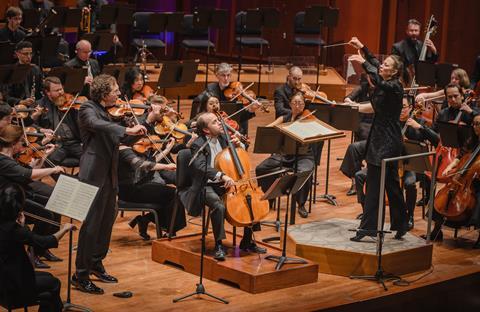 Concertmaster Noah Geller, principal cellist Efe Baltacıgil and the Seattle Symphony with guest conductor Alevtina Ioffe; photo (c) Carlin Ma
Concertmaster Noah Geller, principal cellist Efe Baltacıgil and the Seattle Symphony with guest conductor Alevtina Ioffe; photo (c) Carlin Ma
Discover more Featured Stories
The Seattle Symphony made headlines at the end of summer with the announcement that Xian Zhang will take on the reins as new music director starting with the 2025/26 season (for an initial contract of five years) – becoming the first woman conductor to lead a major West Coast orchestra.
The Seattle Symphony has been without a leader since Zhang’s predecessor, Thomas Dausgaard, resigned in the midst of his tenure in early 2022. Among those who have been helping to hold down the fort during this period of transition are concertmaster Noah Geller and principal cellist Efe Baltacıgil. Both musicians took the spotlight as soloists in the Brahms Double Concerto, the work headlining the orchestra’s most recent programme. Alevtina Ioffe, who made her symphonic US debut with the Seattle Symphony a year ago, returned to the podium to guest conduct.
Geller became concertmaster in 2018 — that appointment followed a three-year gap while the search was underway — and Baltacıgil has served in his leading role since 2011. The duo’s approach to the Brahms was nourished by their longstanding relationship with the Seattle Symphony and their own partnership as orchestral leaders and participants in the city’s rich chamber music scene. Those factors ensured a coherence of purpose, as well as a sense of collective excitement, that can go missing when a pair of outsider soloists is imported for the occasion.
The Double Concerto has a reputation for being relatively ‘lightweight’ Brahms, but Geller and Baltacıgil made their deep admiration of the score so manifest that, while we were listening, this seemed music of great consequence indeed. Their well-matched advocacy proved especially compelling in the first movement, which unfolded with moments of gripping suspense mixed with an expansive sense of friendship.
Particularly fascinating was how each artist conveyed a distinctive persona and even musical philosophy — Geller’s violin a soaring poet, Baltacıgil’s cello more mutable and moody – while also being able to meld into into a kind of hyper-instrument.
Watching their eye contact and reactions enhanced the effect of camaraderie that seems to be the foundation of the concerto, an unusual work that represented an act of ‘reconciliation’ (Clara Schumann’s word) between the composer and his estranged friend Joseph Joachim. The soloists blended gracefully with the individual woodwind colourations in the Andante.
Ioffe confidently adjusted dynamic levels, though I wanted a tad more breathing room for phrases to have a fuller bloom. Precise rhythmic articulation powered the finale, passion and humour intermingling in unpredictable proportions.
Humour abounded in the curtain-raiser, Smetana’s Overture to The Bartered Bride, with the strings as a whole sounding clean, crisp and faultlessly synchronised, while the Suite from Der Rosenkavalier, which began the second half of the programme, inspired radiant ensemble sound.
After an unusually stately start to the lovemaking depicted in the opera’s first-act prelude, Ioffe shaped a luxurious yet refreshingly transparent sound world. During the applause, she enthusiastically called out kudos for the many indispensable players from each section. Borodin’s Polovtsian Dances from Prince Igor (sans chorus) closed the programme with a wildly rousing kaleidoscope of timbres and frenzied rhythms.
Read: Joshua Roman’s debut solo album and the healing power of music
Read: Sentimental Work: Alexander Sitkovetsky on Bach’s ‘Double’ Violin Concerto
The number one source for playing and teaching books, guides, CDs, calendars and back issues of the magazine.
In The Best of Technique you’ll discover the top playing tips of the world’s leading string players and teachers. It’s packed full of exercises for students, plus examples from the standard repertoire to show you how to integrate the technique into your playing.
The Strad’s Masterclass series brings together the finest string players with some of the greatest string works ever written. Always one of our most popular sections, Masterclass has been an invaluable aid to aspiring soloists, chamber musicians and string teachers since the 1990s.
The Canada Council of the Arts’ Musical Instrument Bank is 40 years old in 2025. This year’s calendar celebrates some its treasures, including four instruments by Antonio Stradivari and priceless works by Montagnana, Gagliano, Pressenda and David Tecchler.

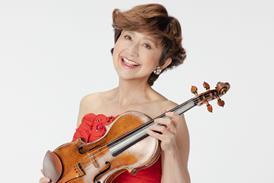
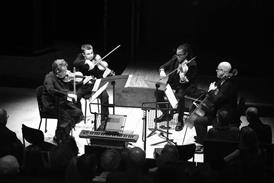
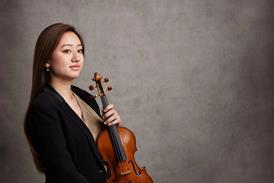
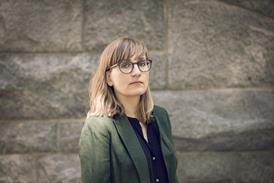

































No comments yet